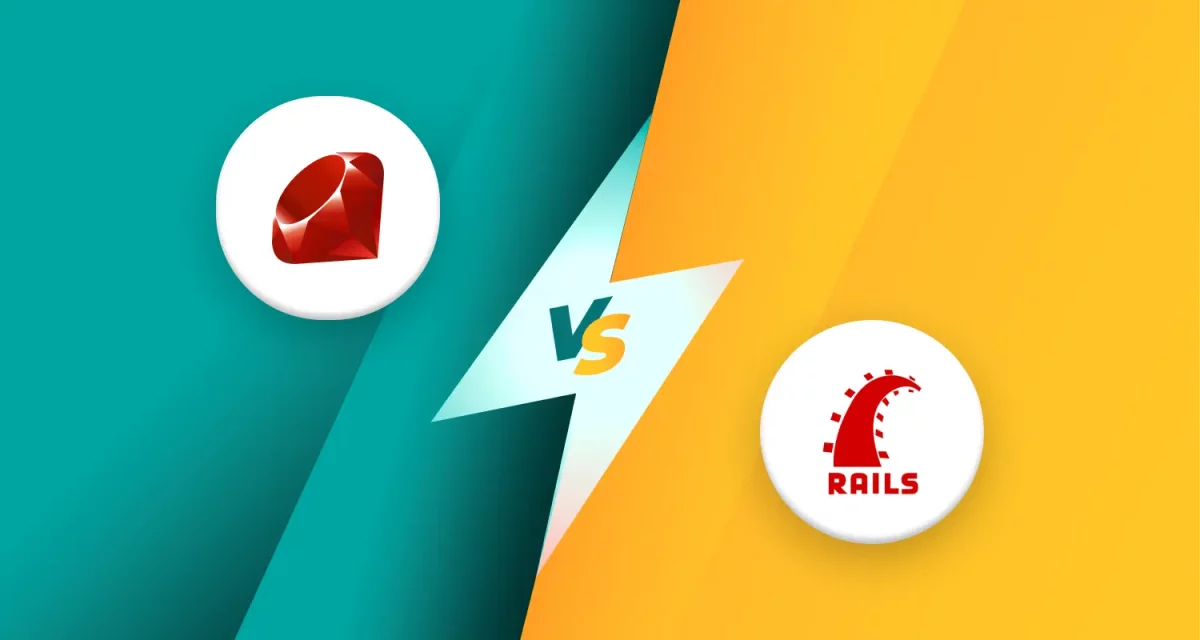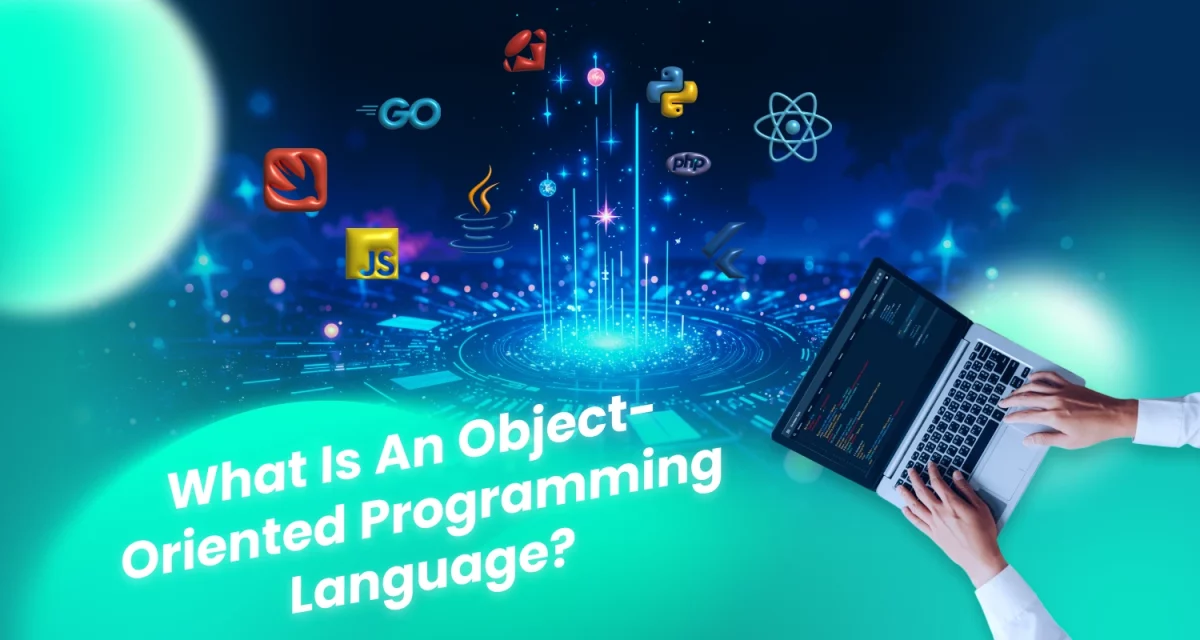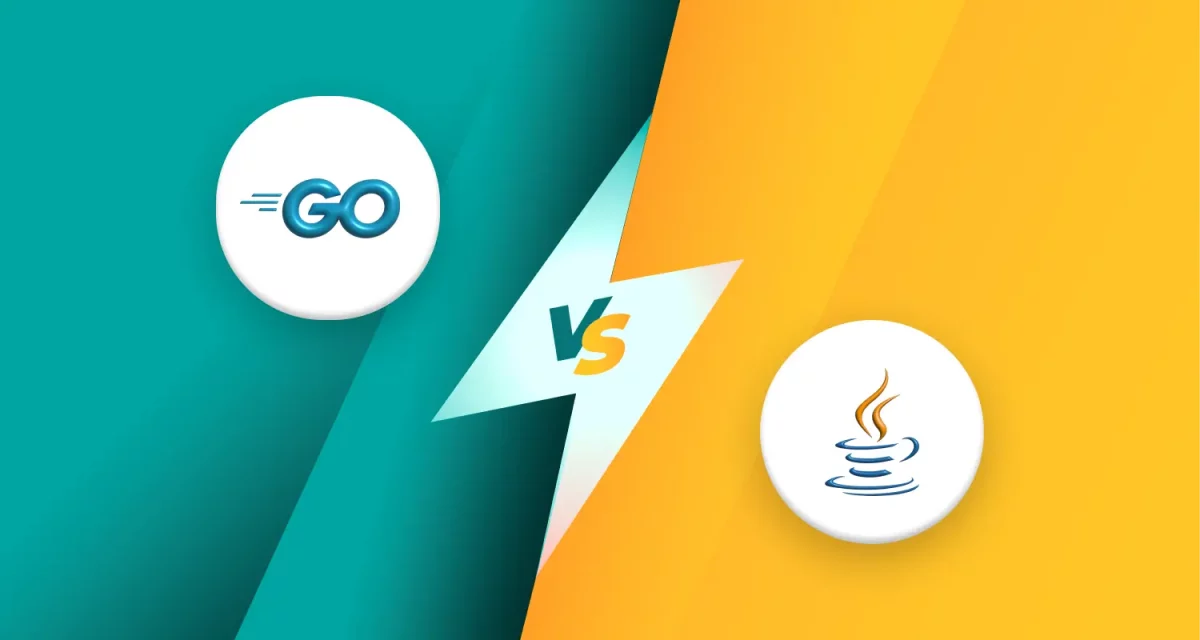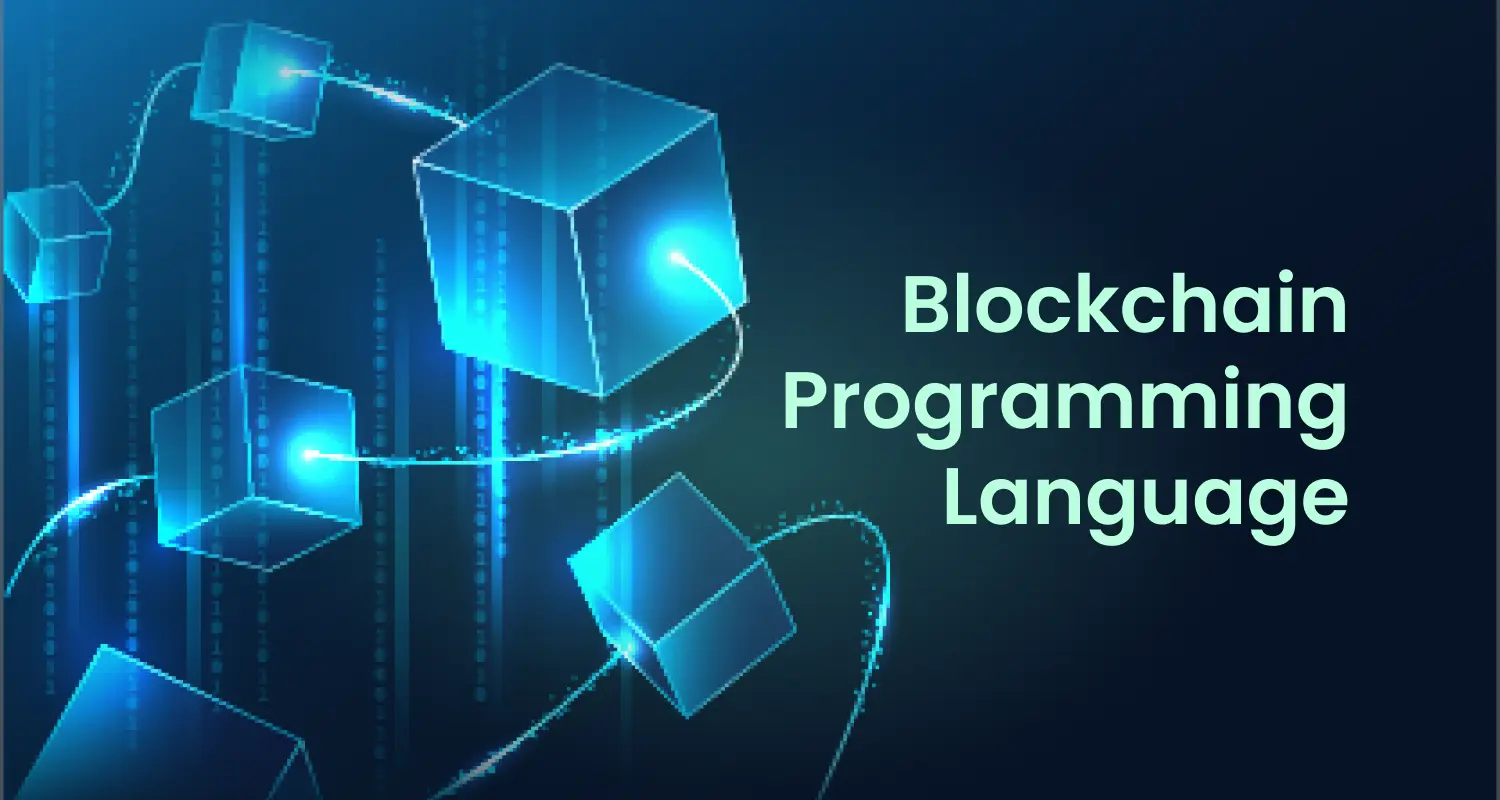
Blockchain technology is reshaping industries by enabling secure, decentralized transactions. The blockchain programming language is at the heart of this innovation, which developers use to build decentralized applications (DApps) and smart contracts. These self-executing contracts automate transactions, ensuring security and efficiency without intermediaries. Mastering the correct blockchain programming language is essential for creating scalable and secure blockchain solutions.
1. Top 15 blockchain programming languages
The correct blockchain programming language is crucial for developing smart contracts and decentralized applications (DApps). Each language has unique strengths, catering to different blockchain platforms and use cases. Below are the top programming languages used in blockchain development.
1.1. Solidity
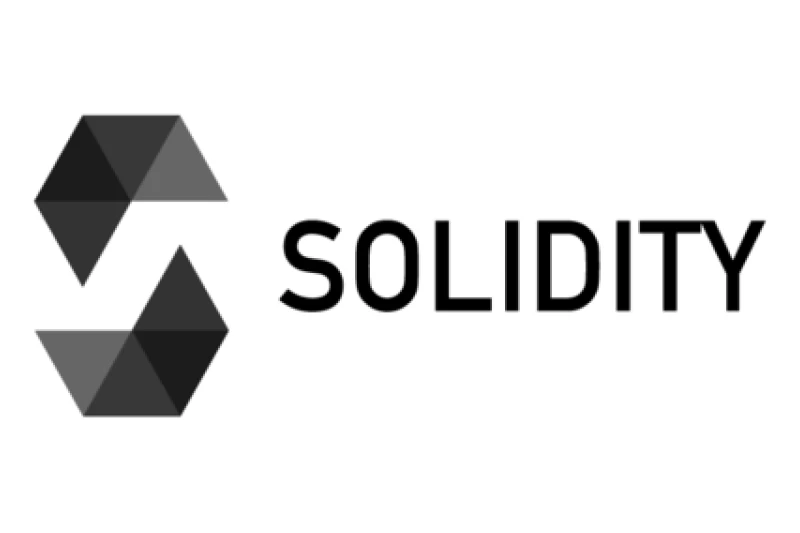
Solidity is the most popular blockchain programming language for developing smart contracts on Ethereum and other EVM-compatible blockchains. Explicitly designed for blockchain, Solidity is a contract-oriented language that supports static typing, inheritance, and complex user-defined types, making it well-suited for building decentralized applications (DApps).
Key features and benefits:
- Optimized for ethereum: Solidity is the native language of the Ethereum Virtual Machine (EVM), making it the best choice for Ethereum smart contracts.
- Contract-oriented design: Explicitly built for blockchain applications, Solidity allows developers to write secure and efficient contracts that execute automatically when predefined conditions are met.
- Strong developer ecosystem: With extensive documentation, libraries, and frameworks like Truffle, Hardhat, and Remix, Solidity is well-supported for blockchain development.
- Use case: Ethereum-based applications, smart contracts, DeFi protocols, and NFT marketplaces.
Read more >>> How to Create a Blockchain: Build Your Own Secure Network Today!
1.2. Java
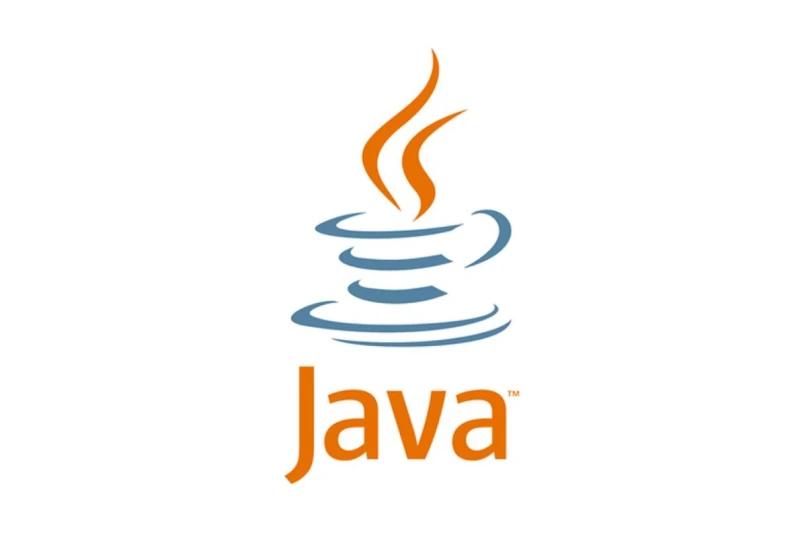
Java is a powerful, object-oriented programming language widely used in enterprise blockchain solutions like Hyperledger Fabric. Java’s portability, security, and scalability make it an excellent choice for large-scale blockchain applications that require integration with existing enterprise systems.
Key features and benefits:
- Independence of Platform: Java’s “write once, run anywhere” feature guarantees that a blockchain application will run in any environment without modification.
- Enterprise-grade security: Java provides built-in features such as cryptographic libraries and robust access control mechanisms, making it ideal for permissioned blockchain networks.
- Mature ecosystem: With extensive libraries, frameworks, and developer support, Java is well-equipped for building scalable blockchain applications.
- Use case: Hyperledger Fabric, Corda, and permissioned blockchain networks in finance, supply chain, and enterprise solutions.
Read more >>> TOP 12 Best Java Machine Learning Libraries 2025
1.3. Python
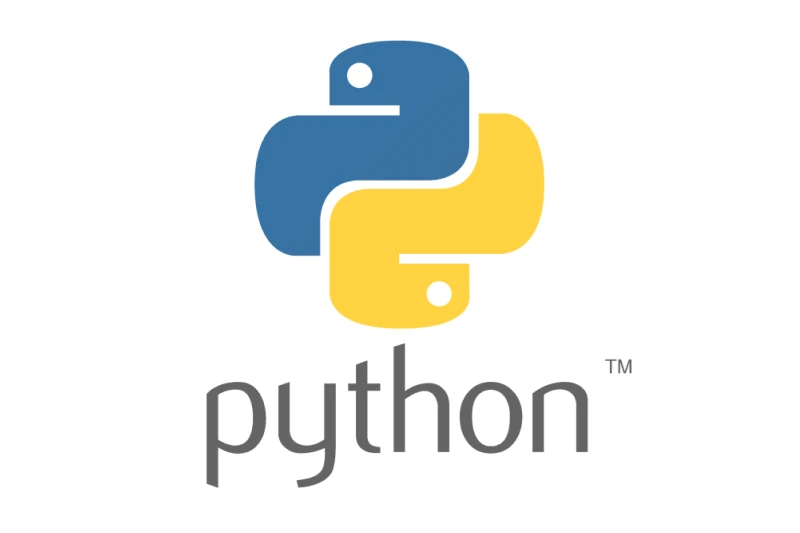
Python is known for its simplicity, readability, and versatility, making it a great choice for beginner and experienced blockchain developers. With robust libraries like Web3.py, Python enables seamless interaction with blockchain networks and simplifies the development of smart contracts and decentralized applications.
Key features and benefits:
- Easy to learn: Python’s clean syntax and extensive documentation make it an accessible language for blockchain development.
- Rich library support: Libraries like Web3.py and Ethereum’s Blockchain provide tools to interact with blockchain networks and develop smart contracts.
- Rapid prototyping: Python is excellent for quickly building, testing, and deploying blockchain applications.
- Use case: Blockchain analytics, intelligent contract scripting, and Web3 development.
Read more >>> Why Python Is the Best Programming Language?
1.4. C++
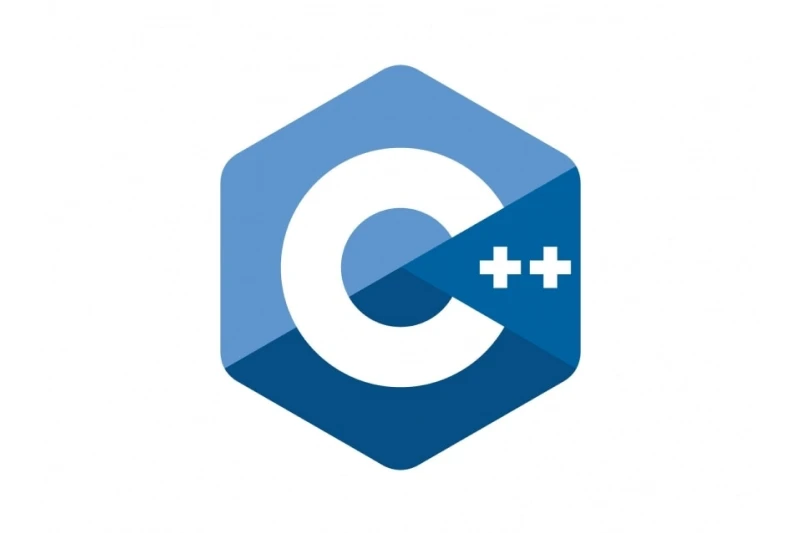
C++ is one of the most powerful programming languages for blockchain development, and it is used in foundational blockchain projects such as Bitcoin Core. Its high performance, memory control, and low-level system access make it ideal for developing core blockchain protocols and cryptographic algorithms.
Key features and benefits:
- High performance: C++ provides efficient memory management and fast execution speed, critical for blockchain consensus mechanisms and transaction validation.
- Low-level access: Unlike higher-level languages, C++ allows developers to fine-tune system resources for optimal blockchain performance.
- Object-oriented and modular design: C++ enables the creation of secure and reusable blockchain components, improving maintainability.
- Use case: Bitcoin, blockchain infrastructure, and cryptographic security protocols.
Read more >>> 13 Best AI Languages for Machine Learning & Deep Learning
1.5. Go (Golang)
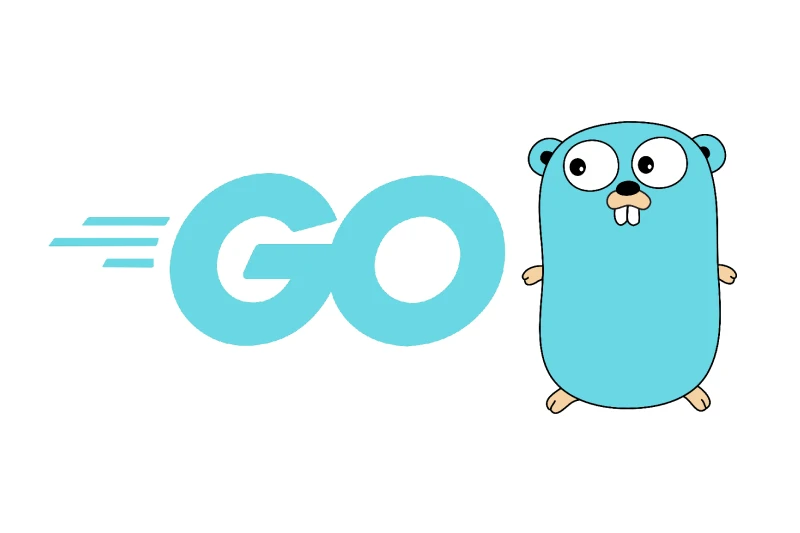
Go, developed by Google, is a high-performance, statically typed language widely used in blockchain development, particularly in projects like Hyperledger Fabric and Ethereum 2.0. Go is an excellent choice for scalable and secure blockchain networks because of its simplicity, concurrency, and efficiency.
Key features and benefits:
- High concurrency support: Go’s goroutines enable efficient parallel processing, making it ideal for handling multiple blockchain transactions simultaneously.
- Fast compilation and execution: Go’s compiled nature ensures blockchain applications run efficiently with minimal overhead.
- Strong standard library: Go provides built-in support for cryptography, networking, and concurrency, making blockchain development seamless.
- Use case: Hyperledger Fabric, Ethereum 2.0, and scalable blockchain networks.
1.6. Rust
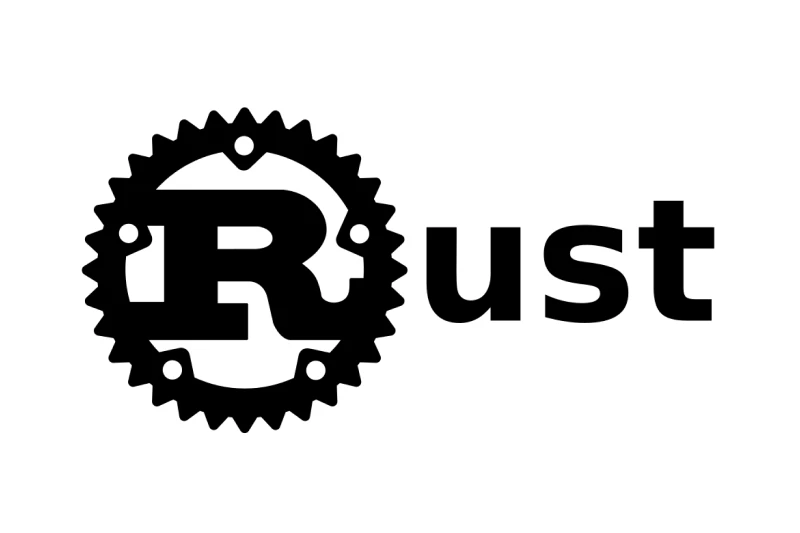
Rust is gaining popularity in blockchain development for its focus on security, memory safety, and performance. Used in Polkadot, Solana, and Near Protocol, Rust excels in building high-performance blockchain systems with minimal memory leaks and vulnerabilities.
Key features and benefits:
- Memory safety without garbage collection: Rust prevents buffer overflows and memory leaks, ensuring secure blockchain applications.
- High performance: Rust’s zero-cost abstractions and optimized execution make it ideal for blockchain consensus mechanisms.
- Concurrency without race conditions: Rust enables multi-threading without common concurrency issues, enhancing blockchain scalability.
- Use case: Polkadot, Solana, and security-focused blockchain projects.
Read more >>> Rust vs C++: Which Language Reigns Supreme in 2025?
1.7. Other programming languages in blockchain development
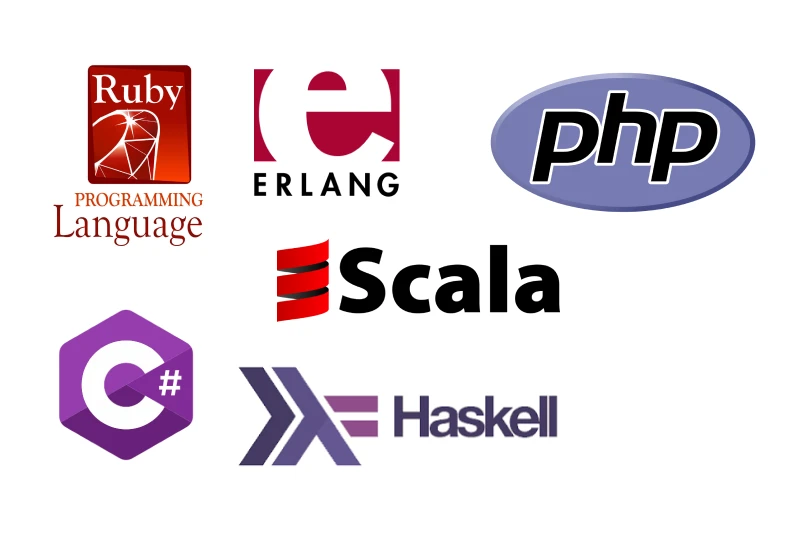
While the above languages dominate blockchain development, several other programming languages also play essential roles:
- Ruby: Although less common, Ruby is used in blockchain prototyping due to its developer-friendly syntax and rapid development capabilities.
- C#: Microsoft’s .NET ecosystem supports blockchain development, making C# a suitable choice for enterprise blockchain applications.
- Simplicity, Rholang, and Erlang: These functional languages are designed for smart contract development and high-concurrency applications.
- Scala, Haskell, CX, and PHP: Each of these languages has specific applications in blockchain, from functional programming to security-focused solutions.
Read more >>> How Much Does It Cost to Create a Cryptocurrency in 2025?
2. How to choose the correct blockchain programming language
Selecting the best blockchain programming language is crucial for building secure, scalable, and efficient blockchain applications. Whether you’re developing smart contracts, decentralized applications (DApps), or an entire blockchain protocol, the correct language can significantly impact performance, security, and ease of development. When choosing a blockchain programming language, consider the following factors:
2.1. Performance

Blockchain applications often require high-speed transaction processing and efficient resource management. Some languages are optimized for performance, making them better suited for blockchain infrastructure.
- Best for high performance: C++, Rust, Go.
- Use case examples: Bitcoin (C++), Solana (Rust), and Hyperledger Fabric (Go).
2.2. Security
Blockchain applications must be highly secure to prevent vulnerabilities like hacks, reentrancy attacks, and smart contract bugs. Some languages provide strong memory safety and built-in security features.
- Best for security: Rust, Solidity, Java.
- Use case examples: Polkadot (Rust), Ethereum smart contracts (Solidity), and enterprise blockchain security (Java).
2.3. Ecosystem and developer support
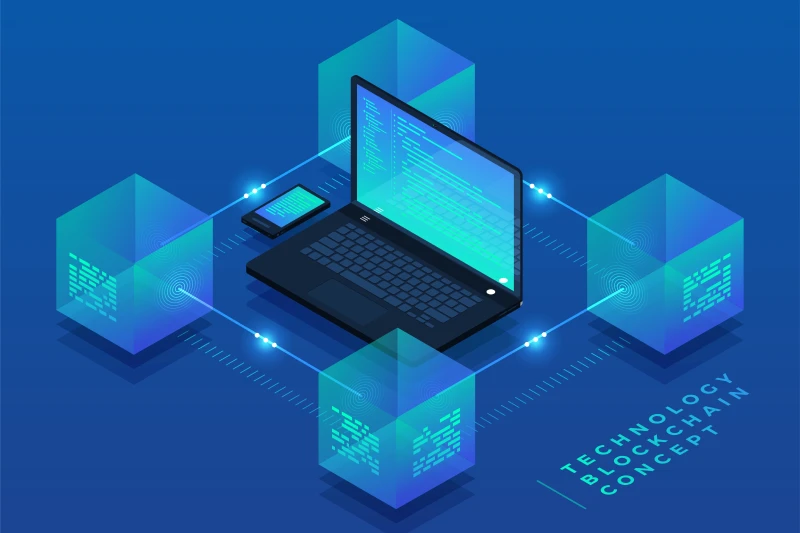
A strong developer community, extensive libraries, and robust documentation can make blockchain development easier.
- Best for ecosystem support: Solidity, Java, Python.
- Use case examples: Ethereum (Solidity), Hyperledger (Java), and Web3 development (Python).
2.4. Development speed and ease of use
Some languages are easier to learn and allow for faster prototyping and development. If you’re new to blockchain, choosing a beginner-friendly language can be beneficial.
- Best for quick development: Python, JavaScript, Go.
- Use case examples: Blockchain analytics (Python), Web3 applications (JavaScript), decentralized apps (Go).
3. Recommended languages for different blockchain applications

3.1. Smart contract development
Innovative contracts power Ethereum, Binance Smart Chain, and other EVM-based blockchains. These contracts must be secure, efficient, and compatible with blockchain protocols.
- Best language: Solidity (Ethereum, Binance Smart Chain).
- Other options: Rust (Solana, Polkadot) and Simplicity (Bitcoin smart contracts).
3.2. Blockchain protocol development
If you’re building the core blockchain infrastructure, you need a high-performance and secure language.
- Best language: C++ (Bitcoin, EOS).
- Other options: Rust (Solana, Polkadot) and Go (Hyperledger Fabric).
3.3. Enterprise blockchain solutions
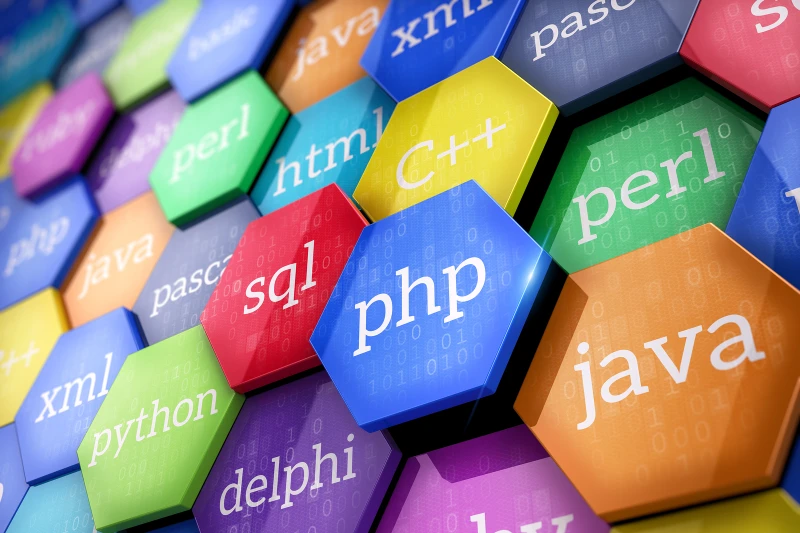
Businesses require secure, scalable, enterprise-grade blockchains, often built on permissioned networks.
- Best language: Java (Hyperledger Fabric, Corda).
- Other options: C# (.NET-based blockchain apps), Go (Hyperledger Fabric).
3.4. Web3 and Decentralized Applications (DApps)
DApps need fast development cycles, easy integrations, and strong Web3 support.
- Best language: JavaScript & TypeScript (Web3.js, Ethers.js).
- Other options: Python (Web3.py) and Go (DApp backends).
3.5. Blockchain security and cryptography
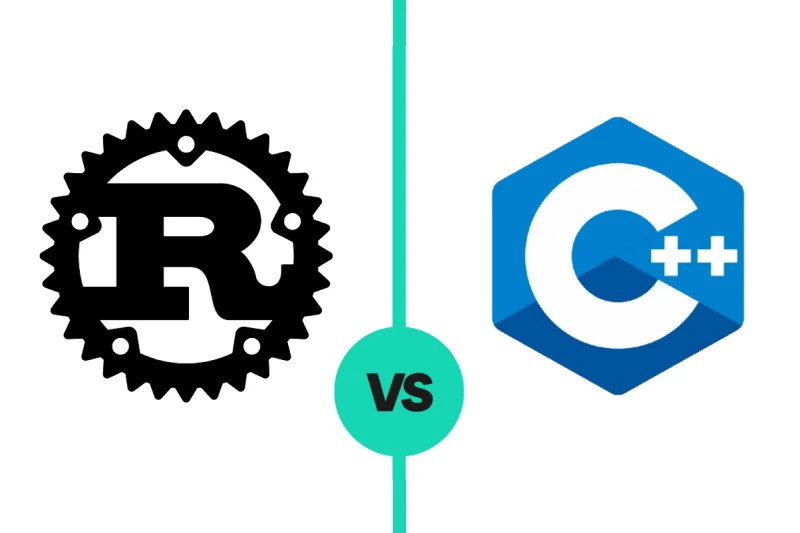
Security is critical in blockchain, especially for privacy-focused networks and cryptographic protocols.
- Best language: Rust (for high-security blockchain systems).
- Other options: C++ (Bitcoin cryptographic implementations).
4. Conclusion
The future of blockchain programming language development is evolving, focusing on security, scalability, and efficiency. Emerging languages like Move and Cadence are gaining traction, while Rust remains a strong choice for blockchain projects. Developers should continue learning and adapting to new blockchain programming languages and technologies to stay ahead.


